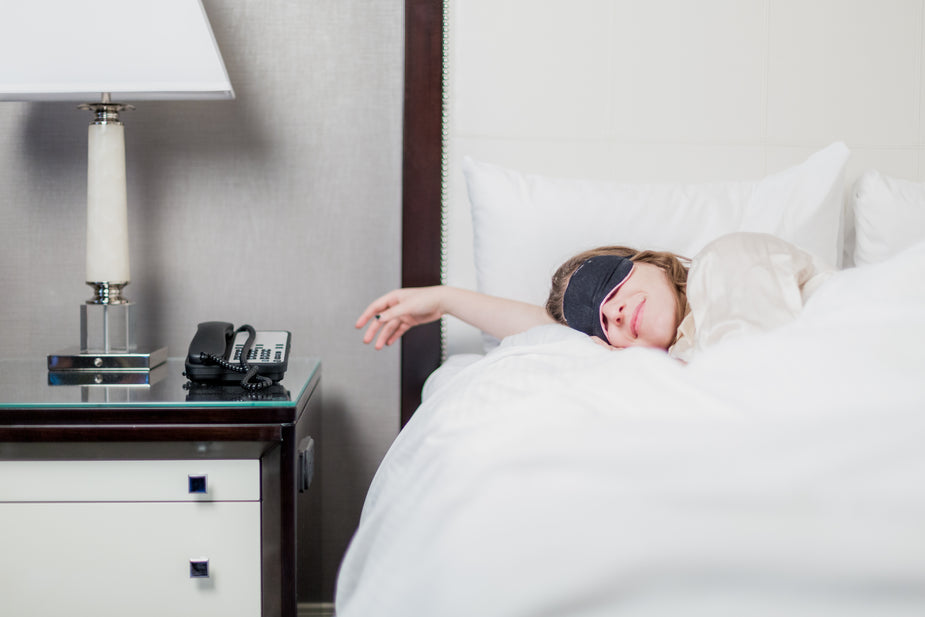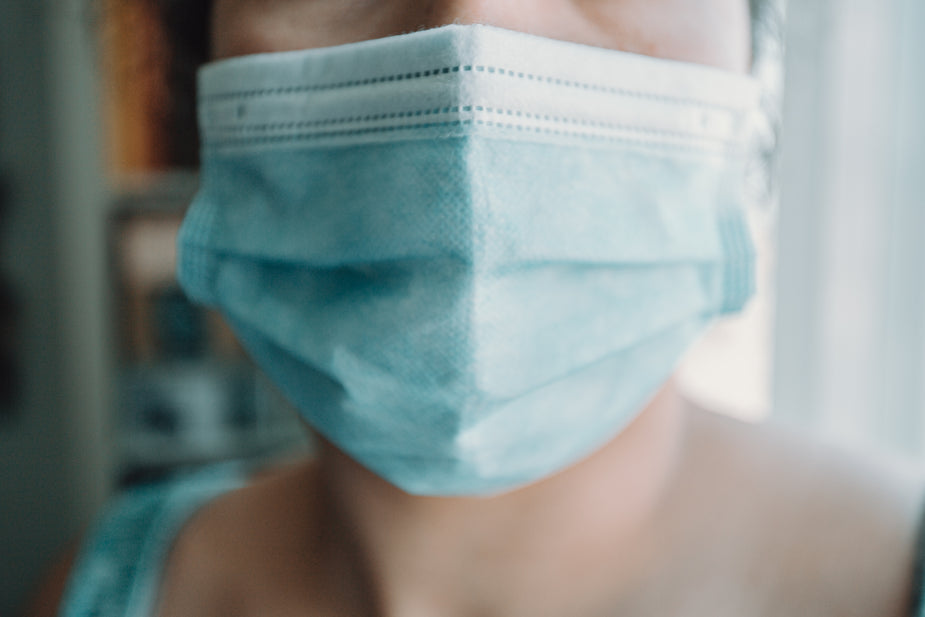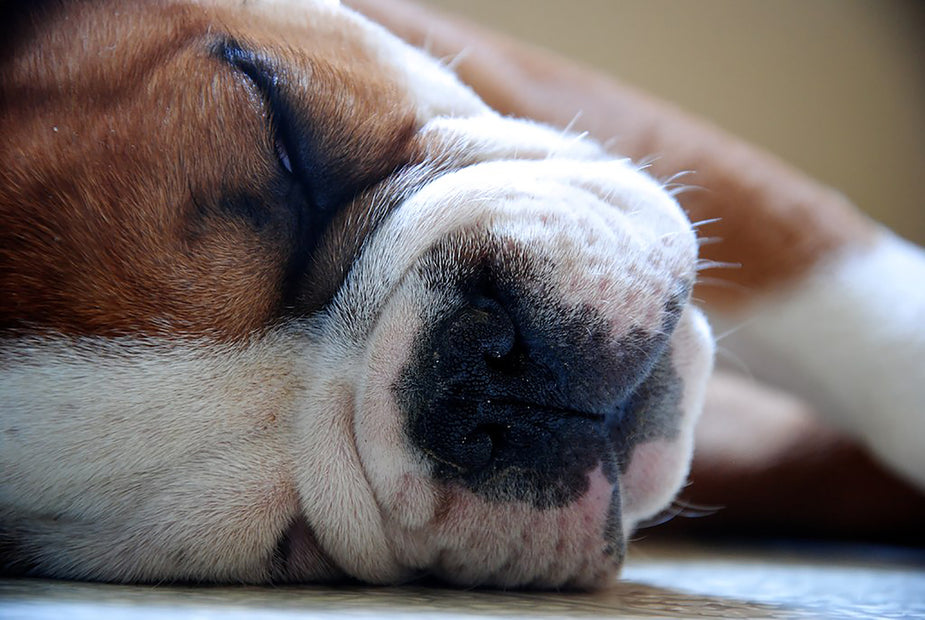April 6th, 2024 – Why Sleep Should Be On Your Priorities List

In my previous blog posts, I’ve made it clear that you need to prioritize your own health when you’re trying to work from home. You should be aware of it in your workspace, in your time schedules, and in the methods you choose to employ when you’re under stress.
I’m not too proud to admit that I’m still working on getting it right myself.
If we’re being honest, learning how to prioritize my physical health when I’m under professional stress has always been an issue for me. It is only recently that I’ve started putting more effort into it and encouraging others to do the same. I know the benefits of it, and I’ve seen how it can be helpful and increase your productivity.
But if you’re anything like me, you’ll understand that when things get heavy, sleep gets light. If I have looming deadlines, a stacked plate, and a heavier workload than I normally do, I have found myself slipping into fight or flight. I know I’m not alone in this because I’ve done the research, and I’ve seen the studies. Stress causes an adrenaline response in our bodies, and we end up in survival mode trying to fight our way out of it. For me, this looks like losing sleep.
I wanted to know exactly how that is affecting me. I wanted to see what the consequences were of my hundred hour work weeks and my two hours of sleep per night. I’ve got to tell you, the results weren’t good.
So, today, I want to talk to you about why sleep should not be the thing you lose out on when you’re under stress.

How Much Sleep Do You Need
The amount of sleep that each individual person varies. There are a lot of factors to consider, such as your own health issues, your genetics, your daily schedule, and how you feel when you’ve slept too much or too little. The key here is to listen to your body and do what it needs or requires of you. There is, however, a pretty decent guide for the overall average sleep a person needs for different age categories. I’ll post that below!

Doctors have said that there are a lot of different variables and environmental factors that can determine how much sleep you need. Individual needs will vary, so the key is to test out a few different options and see how you feel. If you’re in the 26-64 age range and find that when you sleep for nine hours, you’re overtired and feeling sluggish, then try less and see how that makes you feel. You may go through a trial and error period trying to figure this out, but it’s worth it to know exactly what your body can handle and how it will achieve peak performance.

What Happens If We Don’t Get Enough Sleep?
I always knew there were some obvious side effects to not getting enough sleep. Things like drowsiness, trouble focusing, etc. But I had no idea just how significant the side effects of sleep deprivation can be. Or how damaging they can become if left unchecked and develop into a chronic issue.
Reduces The Quality Of Your Work
When you aren’t getting enough sleep, you’ll end up experiencing some of the obvious symptoms I’ve mentioned above. As well you can experience things like trouble learning new things, a lack of alertness, and a lack of basic problem-solving skills. This issue only gets worse the longer you go without adequate sleep. You lose the ability to catch mistakes in your work that you normally would not have made. Your ability to problem solve goes right out the window. You can’t access the creative parts of your brain to help identify solutions to different problems or create interesting new work.
You also lose the ability to maintain any new information over time. When we sleep, our brain makes the connections in our mind that help us form memories. If we aren’t sleeping, our brains will not get the opportunity to do that. So if by happenstance you were still able to learn and understand a new thing while you were sleep deprived, you won’t hold on to that knowledge for long.

Social Distress
When you don’t get enough sleep, you become cranky, frustrated, and more easily prone to anger. This will not make you a fun person to be around. There is not enough coffee in the world to help make up for a lack of sleep. But these emotions that you feel can have a negative impact on the way you interact with and perceive others.
A lack of sleep can make you more irritable and emotional. It messes with your brain in a way that makes it difficult to regulate or identify your emotions. This can make it much easier to become frustrated at small or insignificant events. You’re more likely to start conflict with others, and you can even find yourself lacking the ability to trust others.
Your friends and family may forgive you for the things you say when you’re tired. But how often is that going to happen before you start causing long-term damage to the significant relationships in your life? Do you remember those Snickers commercials? “You’re not you when you’re hungry”? The same rules apply.
Mental And Emotional Issues
Apart from causing turmoil in your social relationships, a lack of sleep can wreak havoc on your mental health. You become quick-tempered or impulsive in the short term. And it can even lead to anxiety and depression in the long term. These issues can easily become chronic when paired with long-term sleep deprivation.
Studies have shown that a lack of sleep can lead to paranoia or even suicidal thoughts. Long-term sleep deprivation can cause hallucinations. You will see and or hear things that aren’t really there. I don’t know about you, but the thought of losing grip on my reality seems way too scary for me.

Long-Term Physical Health Issues
If you continue to spend your time with a lack of sleep, you’re going to see these effects on your body. Issues in your brain easily and often manifest themselves in your physical body.
Sleep deficiency or deprivation has been linked to a lot of chronic health issues like kidney or heart disease, high blood pressure, obesity, stroke, and diabetes. You also have a much higher risk of injury, such as broken bones or falls. This is because you lose perception of the world around you. It will cause your body to lose the ability to function inside of that world. You lose your balance and depth perception, and you can find yourself at a greater risk of injury.
Historical tragedies have been at least partially attributed to sleep deprivation, like the nuclear meltdowns at Chernobyl, and Three Mile Island.

What Should Be Done
The easy answer to this question is, “Get more sleep.” But I know as well as anyone that that is easier said than done. However, there are a lot of great tips and tricks you can use in order to try and get your body more ready for sleep at the times you need it to be.
Prioritize Sleep
Give sleep the credit it deserves. Rewire your brain to make sleep something that holds much more weight in your mind.
Maintain A Consistent Sleep Schedule
Once you have done your episodes of trial and error, and you know how much sleep you need, it can be extremely beneficial to go to sleep and wake up at the same time every day. Even on your days off from work. Your body will become accustomed to these times of the day, which means it will start to feel tired at bedtime, and will naturally wake up when the alarm usually goes off. This allows your body the comfort of routine to get the adequate amount of and type of sleep in that given period.
Turn Of Screens And Blue Light
Keep your use of screens (including phones, tablets, and computers) to a minimum at least two hours before the time you want your body to fall asleep. This allows relaxation in your eyes and stops sending firing signals through your eyes and into your brain, so it can begin to shut down and prepare for sleep.
Practice Relaxation Techniques
Give your body an opportunity to wind down before you go to bed. Stop thinking about the things that have caused you stress throughout the day, and instead, do things that make you feel comfortable and at ease. Things like journalling, yoga, meditation, or reading are great ways to wind down before heading off to bed.
—-
I know it can be very easy to prioritize other things over sleep, especially when you are in a panic or stressed out about your deadlines and work. But the sleep you lose in order to meet these deadlines could cause you to suffer a lot more in the long run, and even cause you to produce work you’re not proud of.
I hope you like this week’s post. If you did, make sure to leave a comment down below and come back for a new post on the Next Step Scopist blog!
—-
Home | Blog Home
Last Post: How To Stay Healthy While Working From Home
Next Post: Common Idioms Misheard Or Misused

Leave a Reply